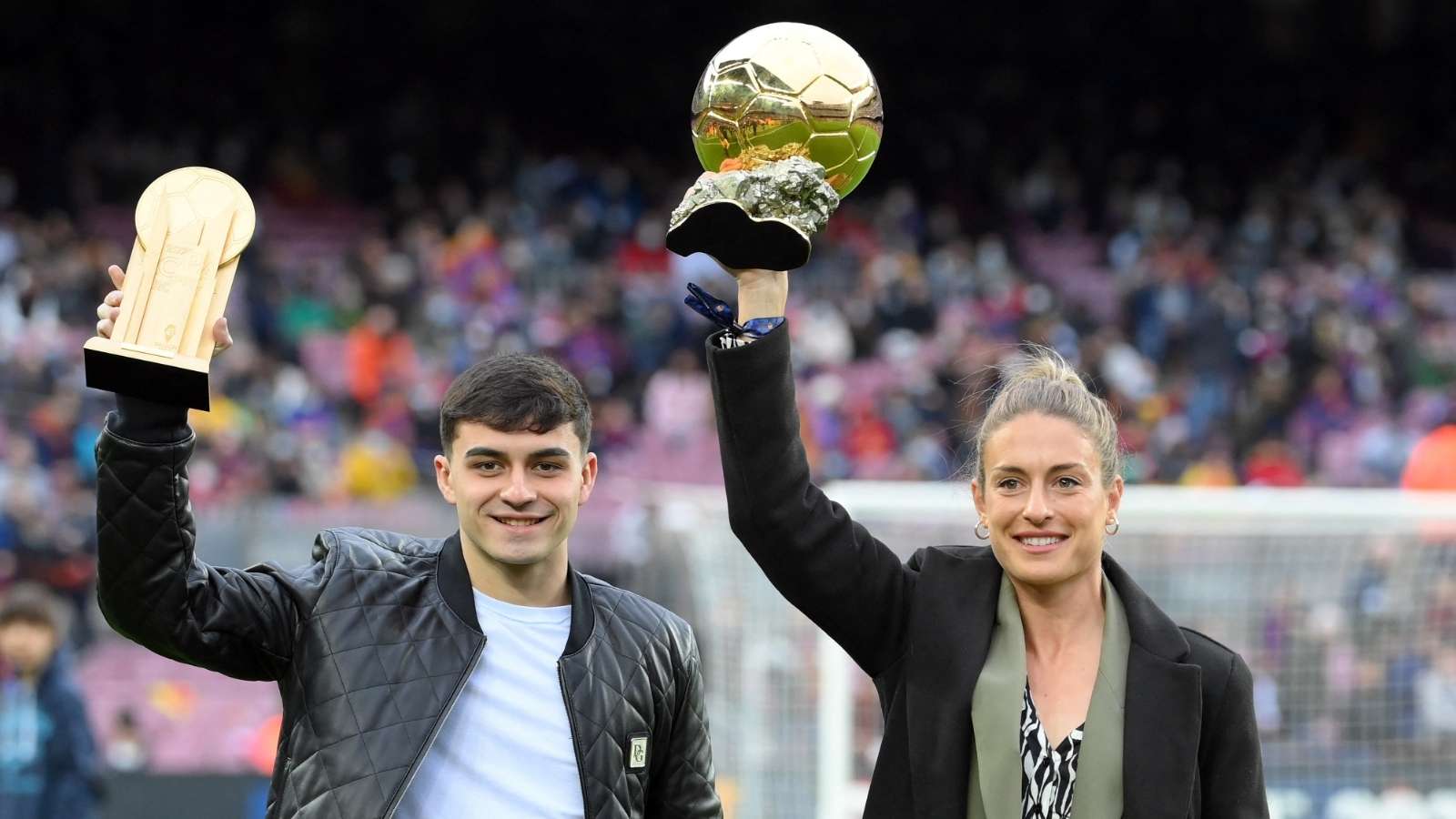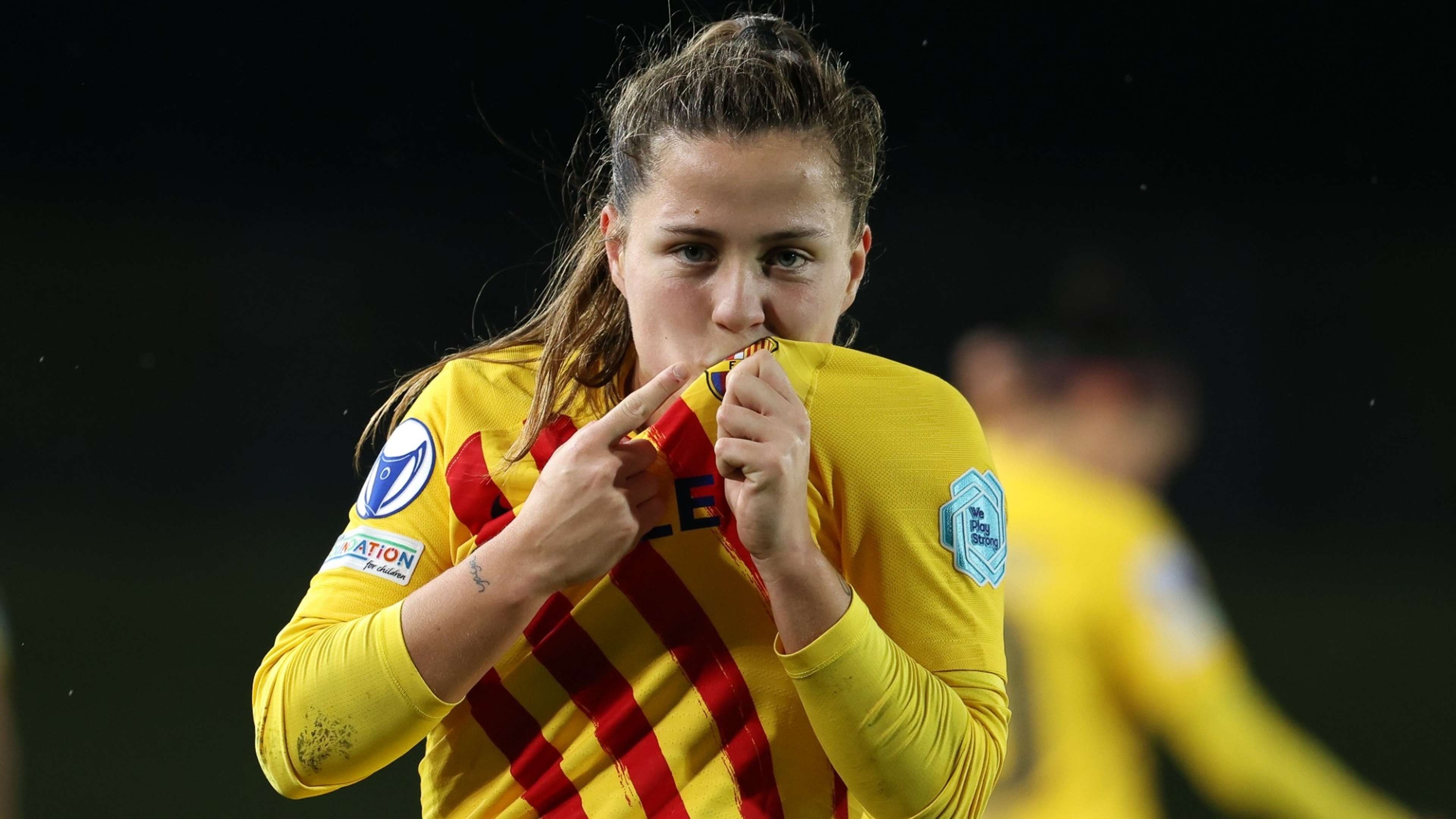Two or three years ago, when Barcelona’s boys’ teams passed through the training centre, they would do just that. But something has changed.
Today, you will see several young players hanging around, waiting for the likes of Alexia Putellas, Mapi Leon or Patri Guijarro to appear, so they can have a photo with one of the stars of the best women’s football team in Europe – and maybe the world.
When Markel Zubizarreta, general manager of the Barca women’s team, explained as much in the build-up to Wednesday's Champions League quarter-final second leg against Real Madrid, it highlighted another way in which the stature of this team has changed over the last seven years.
On Wednesday, Barca Femeni will play in front of a sold-out Camp Nou against the club’s traditional rival, looking to continue its defence of the European title.
Jonatan Giraldez’s side has already retained its league title, beating Real Madrid 5-0 to do so, and could do the treble again, having reached the semi-finals of the Copa de la Reina.
The growth of the women’s game is happening everywhere, with records tumbling as interest and investment soars, but should Barcelona’s stadium be filled on Wednesday, it would be something bigger than anything seen to date.
The second leg of the Women's Champions League quarter-final between Barcelona and Real Madrid can be watched exclusively live on DAZN.
Watch: Barcelona vs Real Madrid (English live stream)
Watch: Barcelona vs Real Madrid (Spanish live stream)
“I believe that tomorrow can be the start of a new era,” Putellas said in Tuesday’s pre-match press conference. “The match is going to be inspiring for so many girls that will be coming tomorrow to Camp Nou, who will be seeing us from TV, and they will see women playing in Camp Nou.
“I am sure that in the mid or long run, we'll be collecting the fruit of tomorrow's match. Seeing women playing in Camp Nou, I'm sure that many, many girls will dream about being those girls, or women, in 20 years.”
“As you have seen, in seven years, we have completely changed everything,” Zubizarreta said in a presentation this week. He is right. He clicked the mouse on his computer as he said these words, changing the slide to move on from the small team of people involved back then, to show all of the nutritionists, physios and others that help make up this all-conquering side today.
That is part of what has helped Barca build such a successful team. The development of the academy, with young women living in La Masia now for the first time, is another reason. The investment in infrastructure and the resources that support the players is, too.
One of the most impressive things about the build-up to Wednesday’s game, though, is how Barcelona has generated the level of interest in the women’s team to the point that it can sell out the Camp Nou in a matter of days.
A similarly impressive feat is that Barca Femeni play their regular games in Estadia Johan Cruyff, a home they moved to in 2019. Previously, they played at the Mini Estadi, right next to Camp Nou.
Moving to a new ground outside of the city should have reduced attendances but, instead, the team averages crowds around four times higher than before.
“We are not a project of women's football,” Zubizarreta responded when asked how the club has achieved this growing fanbase. “We are a project of football.”
A stroll through the city of Barcelona reinforces that idea. The endorsed advertisements around Camp Nou do not only have images of Gerard Pique or Ansu Fati, but also of Aitana Bonmati.
Just as the Ballon d’Or triumphs of Luis Suarez, Johan Cruyff, Hristo Stoichkov and Lionel Messi are celebrated in the club museum, so is that of Putellas.
In the club shop, there are eleven mannequins that stand to mimic the starting line-up of the men’s team. They wear the jerseys of Marc-Andre ter Stegen, Jordi Alba and so on. Mirroring the stance on the other side are eleven more – starting with Sandra Panos and ending with Mariona Caldentey.
The feeling is that this club is proud of its women’s team just as it is proud of any other team in FC Barcelona colours.
 Getty
Getty“That's something I really feel, that they value us as much as the men's team and that it's all about one club,” midfielder Ingrid Engen said this week. “I hope that shows to the rest of the world - because that's how it should be these days.”
“You need to change minds,” Zubizarreta added. “That is the first thing and I think that in this club, these minds changed six or seven years ago.”
To have a successful women’s team, you do need to have good players. You do need good infrastructure. You do need a good academy set-up. But you also need that pride in the team.
You need to show people that it exists. You need to encourage people to support it and continue to spur it on to success. By doing so, you may also encourage the next wave of talent that will bring you success, and the cycle continues.
Putellas said this week that she never dreamed of playing in Camp Nou. She went to the stadium to watch the team that she loves as a young girl, but she never even thought that she could be on that pitch.
“We can open so many doors for so many girls and I feel very proud that Barca makes it possible, because I believe it will be a turning point in women's football in Barcelona, in Catalunya, in Spain, and hopefully all around the world,” she said.
“At the end of the day, Barca is an international team. I believe we will broadcast an important message.”





